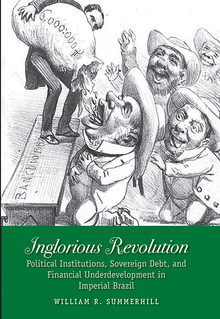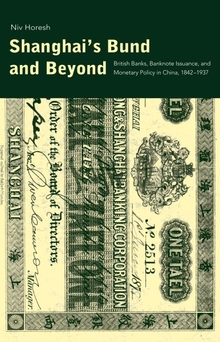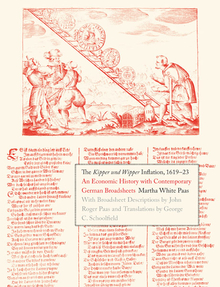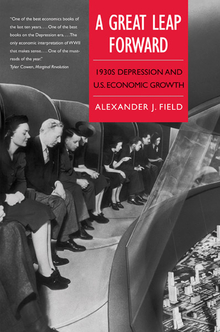Inglorious Revolution
WARNING
You are viewing an older version of the Yalebooks website. Please visit out new website with more updated information and a better user experience: https://www.yalebooks.com
Political Institutions, Sovereign Debt, and Financial Underdevelopment in Imperial Brazil
William R. Summerhill
Nineteenth-century Brazil’s constitutional monarchy credibly committed to repay sovereign debt, borrowing repeatedly in international and domestic capital markets without default. Yet it failed to lay the institutional foundations that private financial markets needed to thrive. This study shows why sovereign creditworthiness did not necessarily translate into financial development.
“Using a vast array of archival evidence, Summerhill convincingly shows that political commitment to a secure public debt was neither necessary nor sufficient to insure financial development in nineteenth-century Brazil. A must-read for economic and financial historians and for anyone interested in the politics of financial development.” —Jean-Laurent Rosenthal, California Institute of Technology
“Using a vast array of archival evidence, Summerhill convincingly shows that political commitment to a secure public debt was neither necessary nor sufficient to insure financial development in nineteenth-century Brazil. A must-read for economic and financial historians and for anyone interested in the politics of financial development.” —Jean-Laurent Rosenthal, California Institute of Technology
William R. Summerhill isa professor of history at UCLA. His research focuses on the determinants of long-run political and economic change in Latin America, with particular emphasis on Brazil.
"Using a vast array of archival evidence Summerhill convincingly shows that political commitment to a secure public debt was neither necessary nor sufficient to insure financial development in nineteenth century Brazil. A must-read for economic and financial historians and for anyone interested in the politics of financial development."--Jean-Laurent Rosenthal, California Institute of Technology
"Inglorious Revolution addresses a frontier question in political economy: new states need sources of finance, but how can a new state make a credible commitment to its creditors that it will repay its debts? Inglorious Revolution shows that Brazil solved this commitment problem by creating a constitutional monarchy in which parliament held the reins of power and was composed of a tight knit class of merchants and planters who were the state's creditors. Credibility came at a cost however, because this merchant-planter elite made sure that almost nothing happened in Brazil without their say-so, and they almost never said yes. Nineteenth century Brazil therefore had stable public finances, and avoided the endless coups and civil wars that plagued new states in Latin America and Africa, but it remained economically backward."--Stephen Haber, Stanford University
"This volume is one of the most original studies of 19th century Brazilian public finance published in any language. It not only provides a wealth of original research material but has raised fundamental issues about why Imperial Brazil’s extraordinary record of international credit in the 19th century did not lead to a major financial and capital development. Does this unusual case of a credit worthy state which still did not grow provide a useful counterbalance to the theories of economic growth. Summerhill makes a good argument for this thesis and thus the book will prove to be of much broader interest to the field of economic history and economic development."--Herbert S. Klein, Columbia University & Stanford University
"Inglorious Revolution is a welcome contribution to Brazilian economic history. This polished, original book will become the main reference for the study of imperial Brazil for historians and economic historians in the years to come.”—Aldo Musacchio, Harvard Business School and Brandeis International Business School
"A critical weakness of much scholarship on long-run economic development is that it makes generalizations from a few salient histories, usually of European countries. In Britain change in political institutions allowing the government to borrow apparently led to a financial revolution. But this brilliant book shows that exactly analogous political changes in Brazil did not have the same consequences. A Trojan horse in the conventional wisdom."--James A. Robinson, University of Chicago
"An innovative contribution to the field of imperial Brazilian history. . . . This is a book that will especially appeal to social scientists interested in the economic history of Latin America and those who study the institutional foundations of economic development."—Melissa Teixeira, H-Net Reviews
“This smart work contributes much-needed nuance to nineteenth-century Brazilian financial development and provides a fuller picture of this oft-maligned period in Brazilian history.”–Teresa Gribelli, Hispanic American Historical Review
ISBN: 9780300139273
Publication Date: October 6, 2015
Publication Date: October 6, 2015
360 pages, 6-1/8 x 9-1/4
33 b/w illus.
33 b/w illus.














